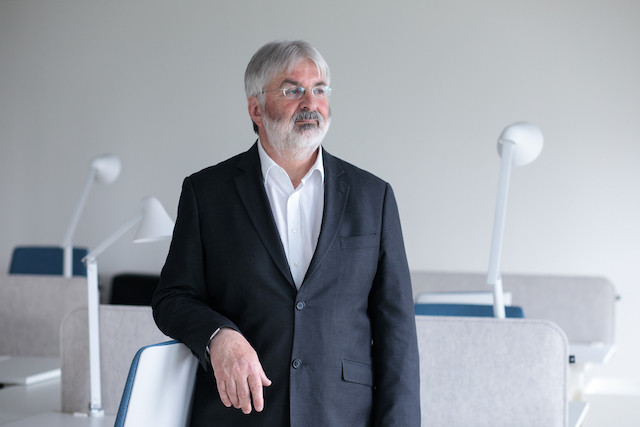Georges Schmit has been following US elections for the better part of his lifetime. Having earned his MA from the University of Michigan--the same place where 38th president of the US Gerald Ford went--Schmit served as consul general and executive director of the Luxembourg Trade and Investment Office (LTIO) in San Francisco from 2009 until 2016, returning from that post just before the 2016 elections.
“America has changed, even though I also remember well the social divisions that were already existing earlier,” he told Delano, referring to the Occupy San Francisco movement in 2011, which saw hundreds demonstrate in the city’s financial district, not far from the LTIO. Schmit added there were “already indications of the division America is going through which is not just political--it’s economic, it’s social.”
Schmit, a career civil servant who devoted over 35 years to the government, now serves on a number of advisory boards, including Space Resources. He has been keeping up with news coming from across the Atlantic, recently reading “The Room Where It Happened” by John Bolton, the former national security advisor to US President Donald Trump, even reading the US constitution some weeks back.
For him, what’s most “unfortunate” is the “form of economic isolation and unilateralism” under which the US is operating.
“Multilateralism is the willingness to deal with global issues in a common way and therefore we have all these international organisations, be they the EU, NATO... on a regional level or on a world scale, the United Nations, WTO, WHO and others,” Schmit said. “But if you decide to withdraw from those contracts, you have to understand that other countries will have to move closer together and deal with these issues among themselves.”
On bilateral relations
Schmit has seen positive ties between the US and Luxembourg in the past which he believes will continue in the future. In his LTIO role, he was top diplomat in Silicon Valley and helped first hand to attract digital content delivery, gaming and fintech companies to the grand duchy, while promoting a range of initiatives launched from Luxembourg.
“Now, since the Luxembourg space policy has evolved and the Luxembourg Space Agency was created and is pretty active on the international scene, the collaboration on the government-to-government level has intensified,” he said. “Space is certainly an area where collaboration will continue to deepen but where there might also be some new issues, such as in the security [and] trade areas--[which] are sometimes linked--so we will have a lot of subjects to talk about in our bilateral cooperation in space.”
However, Luxembourg’s being part of a wider EU collaboration, including with the European Space Agency, has broad implications. “There are a number of MoUs Luxembourg has signed with non-EU and non-North American countries, and of course we tend to continue these collaborations with these other countries as well,” Schmit added.
Administration versus policy
If there were a change to the current administration, on one hand Schmit thinks the US may reconsider its isolationist position. “I would hope for more predictable, less impulsive decision-making than we have now… It’s important for partners to have predictability about somebody else’s behaviour. That’s kind of hard right now.”
Nevertheless, in terms of the shift away from multilateralism when dealing with challenges facing the world, Schmit said, “that is the major issue in US foreign policy. And I see America continuing to move away from that, unless there is a change of policy.”
